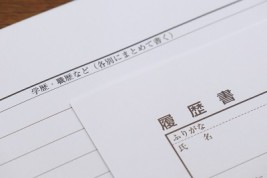Do Foreigners Need to Join Japan Pension Service?
Many foreigners who work in Japan must this question: “Do foreigners need to join the Japanese pension service?”. Well, let me get straight to the point, in Japan people from 20 years old to under 60 years old are obliged to join the pension system. Therefore, if insurance premiums are not paid there is a risk of having problems or losses in the future.In this article, we will explain the outline of the Japanese pension system, so please use it if you are a foreigner working in Japan.About the Japanese Pension SystemWhen you talk about “pension”, many of you may think that is “the insurance premium you paid that will return to you in the future”, but strictly speaking, this is a mistake. The Japanese pension system is a system in which the premium paid by the working generation is paid to the current elderly. In other words, it can be said to be based on mutual support between generations.And all people in Japan who are between 20 and under 60 are obliged to join the pension system.Types of Japanese pensionThere are two types of Japanese pensions: “National Pension” and “Employees’ Pension”.National pensionThe national pension is a pension that all people in Japan who are 20 years old or older and under 60 years old must join. National pension insured people are divided into the following three types, but all foreigners are also eligible.・ 1st type of insured person: self-employed person, student, unemployed person, etc.・ 2nd type of insured person: company employee, civil servant, etc.・ 3rd type of insured person: spouse of 2nd insured personEmployees’ PensionThe Employees’ Pension is a pension that the second type of insured joins in addition to the national pension. This means that foreigners who work at Japanese companies (*mandatory applied) must pay “national pension premium + employee pension premium”. The company pays half of the premium for Employees’ Pension.※ Mandatory business establishments: Business establishments that are obligated to join the Employees’ Pension and Health Insurance by law. A privately-managed establishment with 5 or more corporations or employees is a mandatory establishment.Types of pension you are eligibleThe role of the Japanese pension system is not only for retirement. A pension is paid when you are old, and a pension is also paid when an affiliate becomes disabled, and a pension is also paid to the bereaved when the member dies. In other words, it also functions as disability insurance and death insurance. There are three types of pensions you can get when you meet the conditions.Old-age pensionIf you are over 65, you will receive a certain amount every month. However, insurance premiums must be paid for at least 10 years (120 months).Disability pensionA certain amount will be paid if the subscriber is in a disability state that exceeds the disability certification criteria.Survivor’s pensionWhen the person dies, a certain amount is paid to the bereaved family such as children and spouses.Foreigners are also obligated to join the employees’ pension and the national pension!As mentioned above, all persons with an address in Japan who are 20 years old or older and under 60 years old are required to join the pension system. The same applies to foreigners regardless of nationality.If a foreigner living in Japan works at a company (mandatory company), it is necessary to join the employees’ pension in addition to the national pension. In this case, insurance premiums are deducted from the salary, and it seems that there are few foreigners who have not joined or haven’t paid yet.On the other hand, if a foreigner residing in Japan works at an establishment other than a mandatory company, it will be only enrolled to the national pension. The national pension must be paid by yourself and pay monthly insurance premiums, so be careful not to inadvertently overdue payments or become uninsured.Social security agreements and withdrawal lump sums to overcome the disadvantages of being a foreignerIt is natural that foreigners feel anxiety when joining the Japanese pension system. Some may be thinking “Even if join a Japanese pension, I cannot receive it when I return to my home country in the future …” or “The financial burden of insurance premiums is huge if I join it in Japan because I am enrolled in the pension of my home country, …”.In order to avoid the disadvantages of foreigners regarding pension receipts and insurance premiums, the “Social Security Agreement” and “Lump-sum Withdrawal” systems can be provided.What is a social security agreement?For foreigners who have a pension in their home country, the insurance premium will be doubled by joining the pension in Japan. In Japan, it is necessary to pay an insurance premium of 10 years or more in order to obtain an old-age pension. For example, foreigners who return to Japan in 7 years are not eligible, and the insurance premium for 7 years is withdrawn. The “Social Security Agreement” is established to avoid such disadvantages for foreigners.The social security agreement is a system that allows foreigners from countries that have signed a social security agreement with Japan to join the pension in either Japan or their home country, depending on how long they work in Japan. There are differences depending on the country, but basically a social security agreement is concluded with the following contents.Prevent double charges of insurance premiumsIf you are staying in Japan for less than 5 years, you only need to join the pension in your home country.If you have stayed in Japan for more than 5 years, you only need to join a Japanese pension.These are provisions to prevent double charges of insurance premiums.Total pension membership periodPension enrollment period in your home country can be combined with pension enrollment period in Japan.Pension enrollment period in Japan can be combined with the pension enrollment period in your home country.These are provisions that allow you to receive pensions in Japan or in your home country by adding up the pension enrollment period in Japan and the pension enrollment period in your home country so that insurance premiums are not discarded. For example, even if the pension enrollment period in Japan is less than 10 years, you can get a Japanese old-age pension if the total pension period in your home country is more than 10 years.Of course, in order to be eligible for social security agreements, the foreigner home country must have a social security agreement with Japan. As of July 2019, Japan has signed agreements with 22 different countries, 19 of which are in effect. Please check the following for the status of social security agreements with each country.> Social Security Agreement | Japan Pension ServiceWhat is withdrawal lump sum?From a different perspective than social security agreements, the “lump-sum withdrawal” is a system prepared to avoid the disadvantages for foreigners regarding pensions.Withdrawal lump-sum payment is a system that allows a foreigner who participated in the Japanese Employees’ Pension and National Pension to receive a certain amount of money when returning to their home country before receiving the pension. Foreigners who are not from social security agreement countries should consider whether to receive a lump sum withdrawal when returning home. However, the amount of lump-sum withdrawal payment is usually less than the premium paid during your stay.Foreigners in social security agreement countries can also receive a lump-sum withdrawal payment if the conditions are met. However, if you receive the lump-sum withdrawal payment, you are not participating in the Japanese pension, and it is not possible to add up the total pension period during that period.Conditions for foreigners to get withdrawal lump sumThe lump-sum withdrawal fee must be claimed within two years from the date on which the insured status of the Employees’ Pension / National Pension is lost and has no longer an address in Japan. You can claim a lump sum when all of the following conditions are met:When you not possess a Japanese nationalityThe number of months equivalent to three-quarters of the number of months of premium payment period as the first insured person of the national pension and the number of months of premium exemption period, the number of months equivalent to one half of the number of months of premium exemption period, the total number of months equal to one-fourth of the number of months in the three-quarter exemption period, or the insured period of Employees’ Pension Insurance is more than 6 months.When there is no address in JapanWhen you do not have the right to receive a disability pension or other pensionFor example, in the case of a welfare pension, if a foreigner who has an enrollment period of 6 months or more and does not have the right to receive a disability pension returns to Japan, he or she can claim a lump sum payment according to the enrollment period.How to request a lump sumIf you want to request a lump-sum withdrawal fee, submit the necessary documents to the Japan Pension Service. Please check the following for invoices and attached documents for withdrawal lump sums.>> Withdrawal lump-sum for short-term foreigners | Japan Pension ServiceConclusionIn Japan’s pension system, a system to prevent foreigners from paying double payments or to be discarded from insurance premiums is provided. Foreigners working in Japan should be fully aware of social security agreements and lump-sum withdrawal payments, so that they do not lose their insurance premiums or future pension benefits.














